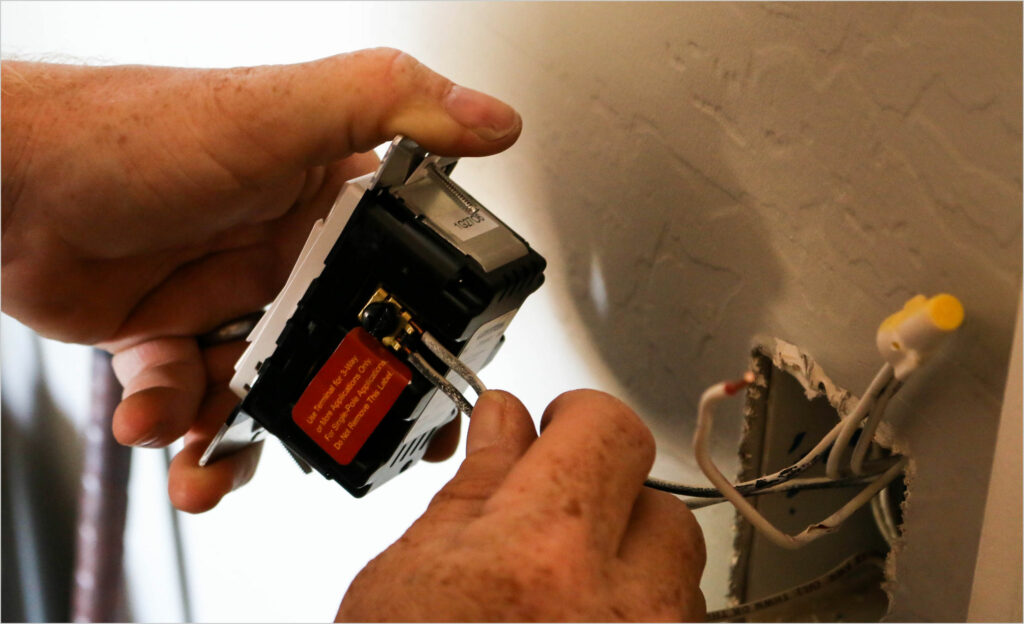The electrical system in your home is a crucial component that provides power to your appliances, lighting, and various electronic devices. It plays a significant role in ensuring your safety and the functionality of your household. Understanding home electrical regulations is essential to maintaining a safe and compliant electrical system. In this blog, we will delve into the importance of adhering to these regulations and why it’s crucial to leave electrical work to the professionals.
- The Purpose of Electrical Regulations
Electrical regulations are a set of rules and standards established by national and local authorities to ensure the safe installation and operation of electrical systems in residential and commercial properties. These regulations aim to protect homeowners from electrical hazards, fires, and electrical shocks.
- Compliance with Building Codes
When it comes to home electrical systems, compliance with building codes is essential. Building codes are a set of regulations that dictate how structures should be built to ensure the safety and well-being of occupants. Electrical regulations are an integral part of these building codes. Non-compliance with these codes can result in legal and safety issues.
- Licensed Electricians
One of the most critical aspects of adhering to electrical regulations is hiring licensed electricians for any electrical work in your home. Licensed electricians are trained and certified professionals who are well-versed in electrical regulations. They have the knowledge and expertise to ensure that electrical installations and repairs are done correctly and safely.
- Permits and inspections
Many electrical regulations require homeowners to obtain permits before carrying out electrical work. These permits ensure that the work is being performed by qualified professionals and is compliant with local building codes. Inspections are often required after the work is completed to verify that it meets the necessary safety standards.
- Electrical Panels and Circuits
Electrical regulations cover various aspects of your home’s electrical system, including the electrical panel and circuits. The electrical panel is the heart of your electrical system, and it must be installed and maintained according to regulations. Proper circuit sizing, breaker types, and overload protection are essential to preventing electrical fires and accidents.
- Grounding and bonding
Proper grounding and bonding are critical elements of electrical safety. These regulations ensure that electrical currents are safely routed to the ground in the event of a fault. Grounding and bonding protect against electrical shocks and reduce the risk of electrical fires.
- Outlet and Switch Placement
Electrical regulations also dictate the placement of outlets and switches within your home. These regulations are designed to ensure convenient and safe access to electrical power. Professionals follow these guidelines to prevent overloading circuits and creating potential hazards.
- GFCI and AFCI protection
Ground Fault Circuit Interrupter (GFCI) and Arc Fault Circuit Interrupter (AFCI) protection are essential safety features required by electrical regulations. GFCIs are designed to detect ground faults and cut off power to prevent electrical shocks, while AFCIs detect arc faults that can lead to fires. These devices are commonly installed in areas where water is present (kitchens, bathrooms) and in bedrooms, respectively.
- Upgrades and renovations
If you’re planning any home renovations or upgrades that involve electrical work, it’s crucial to consult with a licensed electrician who can ensure that the work complies with electrical regulations. Electrical regulations may change over time, and professionals stay updated with the latest standards to provide safe and compliant installations.
- Electrical Safety for Your Home
Understanding and following electrical regulations is not just about legal compliance; it’s about ensuring the safety of your home and loved ones. Electrical hazards can lead to fires, injuries, and even fatalities. By adhering to regulations and hiring licensed professionals, you are taking proactive steps to prevent these risks and create a secure living environment.
In conclusion, home electrical regulations are in place to safeguard your well-being and ensure the safe operation of your electrical system. They are not to be taken lightly, and it’s crucial to hire licensed electricians who are knowledgeable about these regulations. Attempting DIY electrical work or cutting corners can have serious consequences, both legally and in terms of safety. So, when it comes to electrical work in your home, always prioritize compliance with electrical regulations and entrust the job to qualified professionals who can ensure the safety and functionality of your electrical system.
